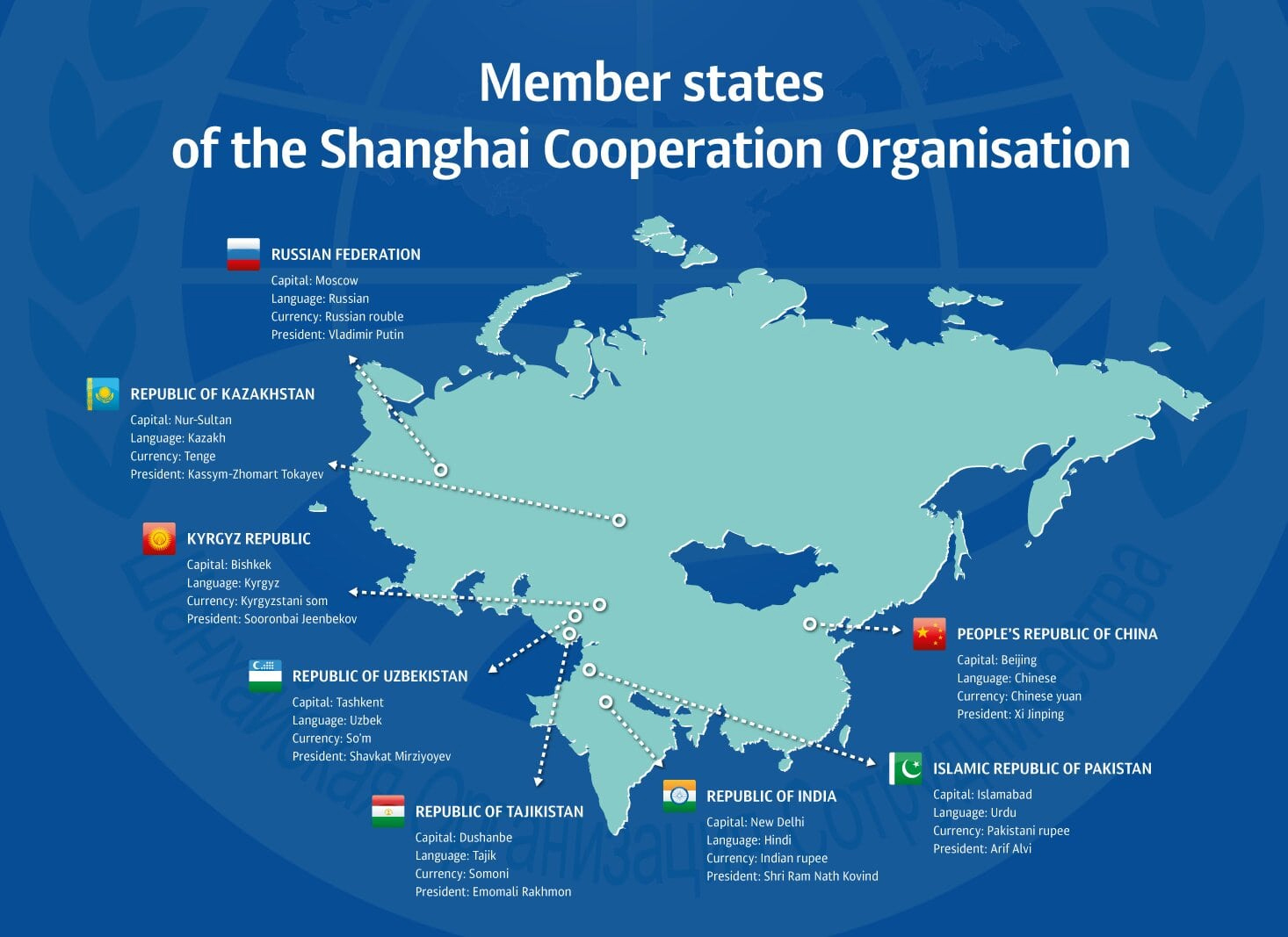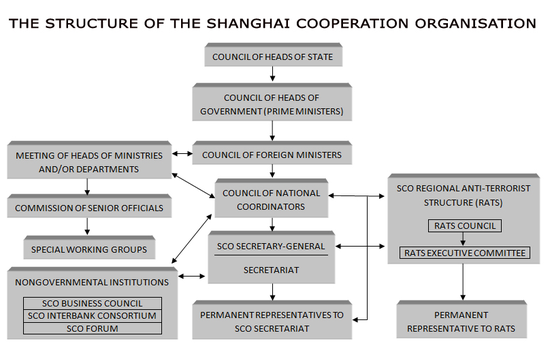International Relations
SCO Defence Ministers’ Meeting
- 29 Jul 2021
- 6 min read
Why in News
Recently, the Shanghai Cooperation Organisation (SCO) Defence Ministers’ Meeting took place in Dushanbe, Tajikistan.
- The Defence Minister of India addressed the grouping and said India is committed to working within the SCO framework for helping create & maintain a secure & peaceful region.
Key Points
- Major Highlights of Defence Minister's Address:
- Terrorism is the most serious threat to international peace and security and support to any acts of terror is a crime against humanity.
- India reaffirms its resolve to fight terrorism in all its forms and manifestations.
- The geo-strategic location of India makes it both a “Eurasian land power” as well as a stakeholder in the Indo-Pacific.
- Highlighted non-traditional security challenges like pandemics, climate change, food security, water security and associated societal disruptions can impact national and international landscape.
- In dealing with Covid-19 pandemic, India has been at the forefront to provide support and assistance to countries through its Vaccine diplomacy.
- India’s initiative on coalition for disaster resilient infrastructure (CDRI) was also an example of how countries were coming together to create and share capabilities to deal with humanitarian assistance and disaster relief issues.
- Terrorism is the most serious threat to international peace and security and support to any acts of terror is a crime against humanity.
SCO
- The SCO was founded at a summit in Shanghai in 2001 by the presidents of Russia, China, the Kyrgyz Republic, Kazakhstan, Tajikistan and Uzbekistan.
- Presently, the SCO comprises eight member states namely India, Kazakhstan, China, the Kyrgyz Republic, Pakistan, the Russian Federation, Tajikistan, and Uzbekistan.
- SCO nations together encompass nearly half the human population and it covers approximately three-fifths of the Eurasian continent in terms of geographical expanse.
- The SCO, seen as a counterweight to NATO, is an eight-member economic and security bloc and has emerged as one of the largest transregional international organisations.
- India was made an observer at the SCO in 2005.
- India and Pakistan became its permanent members in 2017.
- India’s Opportunities and SCO:
- Regional Security: SCO will enable India, as an integral part of the Eurasian security grouping, to neutralise threats like religious extremism and terrorism in the region.
- It is due to this, India has shown keen interest in deepening its security-related cooperation with the SCO and its Regional Anti-Terrorism Structure (RATS), which specifically deals with issues relating to security and defence.
- Connect With Central Asia: SCO is also a potential platform to advance India’s Connect Central Asia policy.
- India’s ongoing engagement with SCO can be seen through the prism of reconnecting and re-energising ties with a region with which India has shared civilizational linkages, and is considered the country’s extended neighbourhood.
- Dealing With Pakistan & China: SCO provides India with a forum where it can constructively engage both China and Pakistan in a regional context and project India’s security interests.
- Bringing Stability in Afghanistan: SCO, also an alternative regional platform to delve into the rapidly changing situation in Afghanistan.
- So far India completed 500 projects in Afghanistan and is continuing with some more, with a total development aid of $3 billion.
- Strategic Importance: Acknowledging the strategic importance emanating from the region and SCO, the Indian Prime Minister had articulated the foundational dimension of Eurasia being 'SECURE’. The letters in the word SECURE are:
- S for Security of our citizens,
- E for Economic development for all,
- C for Connecting the region,
- U for Unite our people,
- R for Respect for Sovereignty and Integrity, and
- E for Environment protection.
- Regional Security: SCO will enable India, as an integral part of the Eurasian security grouping, to neutralise threats like religious extremism and terrorism in the region.
Way Forward
- There is a need to provide high priority to the “consolidation of trust” in the security domain within the SCO as well as strengthening ties with partners of the grouping bilaterally on the basis of equality, mutual respect and understanding.
- The SCO member countries should develop joint institutional capacities that respect individual national sensitivities and yet generate a spirit of cooperation to create contact and connectivity between people, societies and nations.
- Member countries should realise that they have collective stakes to create a safe, secure and stable region that can contribute towards progress and improvement of human development indices.








